#cheryl pounder
Text
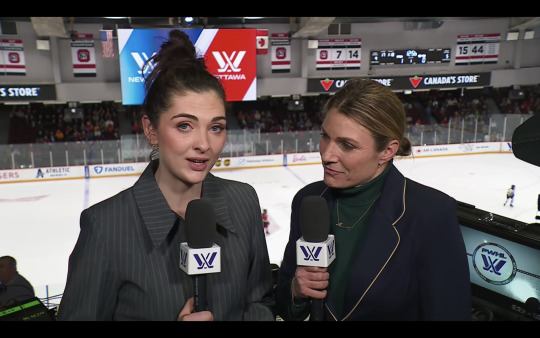

A PWHL game is always better with my girls Kenzie and Cheryl on the call 💜
#kenzie lalonde#cheryl pounder#pwhl lb#pwhl#every hockey game is better with them doing the call#woho
16 notes
·
View notes
Text
‘crosscheck queen’ CHERYL PLEASE 😂 👑
2 notes
·
View notes
Text
toronTo >.<
#<3#pwhl toronto lb#toronto is actually pronounced churonno#i dont like these commentators where are my. uhmm. the other ones#i only know who josh getzoff is im so sorry#leafs commentators are known to me as. craig i think and maybe chris#i might be thinking of cheryl pounder. probably
4 notes
·
View notes
Text
Cheryl Pounder is a national treasure…change my mind
11 notes
·
View notes
Text
And there’s the Sarah Fillier mention that Cheryl pounder makes every game 😂😂
2 notes
·
View notes
Text
Is that the Sarah kid-phenom Cheryl Pounder was talking about on the TSN intermission panels during the WJC? Well, she helped Canada improve to 16-0 all-time over the Swiss.
1 note
·
View note
Text
Just a reminder if you're a hockey fan in Toronto to head to the CWHL Allstar game this Sunday at Scotiabank arena. Tickets are less than $25 and you have the opportunity to see the top talent in the league as well as some guest coaches including Cheryl Pounder, Charlene Labonte, Curtis Joseph, and Gerry D.
Come out and support women's hockey!!!
#ill be there#im avtually super pumped#cheryl pounder#curtis joseph#gerry dee#charente labonte#cwhl#all star game#sarah nurse#laura stacey#marie philip poulin#brianna decker#noora raty
87 notes
·
View notes
Photo
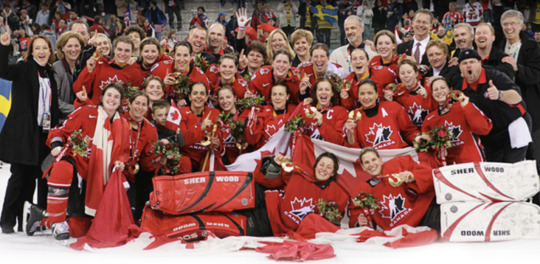
Gold Medal picture (20 February 2006) at the 2006 Winter Olympics.
#hayley wickenheiser#gillian apps#caroline ouellette#Vicky Sunohara#cassie campbell#charline labonte#meghan agosta#Jennifer Botterill#danielle goyette#jayna hefford#cheryl pounder#kim st pierre#sarah weatherston#sarah vaillancourt#women's hockey#Team Canada#2006 winter olympics#gold medal
0 notes
Photo
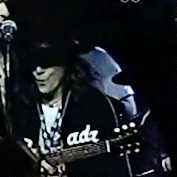



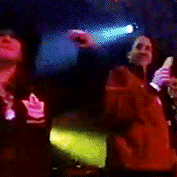


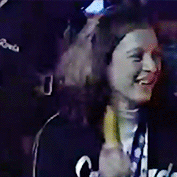
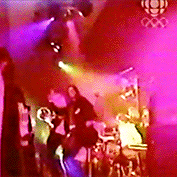
The 2002 national women’s hockey team dancing (and playing tambourines and shakers) on stage with the Tragically Hip two days after winning gold in Salt Lake City. (x)
Tag yourself.
#CanNWT#women's hockey#2002 Olympics#Cheryl Pounder#Becky Kellar#Dana Antal#Colleen Sostorics#Caroline Ouellette#and so many more#realistically i'm dana antal... just standing mostly still and tapping my leg#in my head i'm colleen sostorics singing along enthusiastically tho#also is it homophobic to make lesbians play banana shakers?#i think so
23 notes
·
View notes
Photo

tessab25: We may have retired (from hockey) but we still Captured the Broadcasters cup!! #PlymouthChamps2017 #NBD #womensworldchampionship
22 notes
·
View notes
Photo
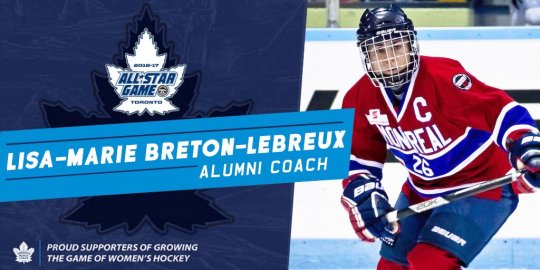

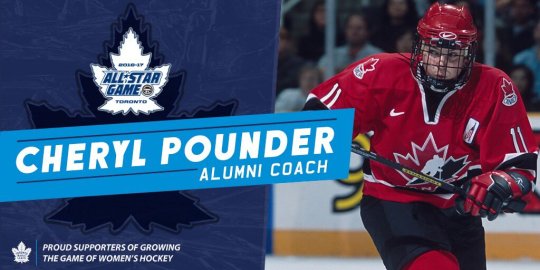
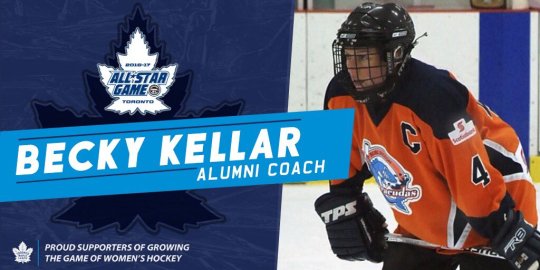
(07.02.17) @TheCWHL: To celebrate #CWHL10 we're bringing back some former stars to coach the #CWHLAllStar teams! Coaches (and players) will be drafted Friday.
#cwhl#all star game 2017#all star game#becky kellar#tessa bonhomme#cheryl pounder#lisa marie breton lebreux#social: league
37 notes
·
View notes
Text
C: The Entertainers
Camilla Beeput Actress | Camille Hyde Actress | Camille McDonald Model | Camille Winbush Actress | Carol Speed Actress | Caroline Chikezie Actress | Catherine Lough Haggquist Actress | CCH Pounder Actress | Celeste O’Connor Actress | Chandler Kinney Child Star |
Chandra Wilson Actress | Chanelletime Blogger | Chantel Riley Actress | Charnele Brown Actress | Cherokee Hall Professional Aerial Dancer & Twerker | Cheryl Lewis Stuntwoman | Cheslie Kryst Pageant Queen | Cheyanne D Jones Actress | China Anne McClain Actress | Chinenye Ezeudu Actress |
Chinet Scott Actress | Chiquita Fuller Actress | Chloe Coleman Child Star | Chosen One Reactions Blogger | Christiana Pitts Stage Performer/Actress | Christina Anthony Actress | Christina Elmore Actress | Christine Adams Actress | Chrystale Wilson Actress | Cicely Tyson Actress |
Ciera Payton Actress | Clarissa Thibeaux Actress/Model | Clark Backo Actress | Coco Jones Actress | Coco Rebecca Edogamhe Actress/Model | Colette Dalal Tchantcho Actress | Condola Rashad Actress/Theater | Crystal Clarke Actress | Crystal Scales Voice Actor | Cupcakke Rapper |
Cush Jumbo Actress | Cynda Williams Actress | Cynthia Addai Robinson Actress | Cynthia Bond Author/Actress

#Black Actresses and Female Entertainers Masterlist#blackfemmecharacterdependency#Black Actresses#black women entertainers#tags masterlist#tags#Camille Winbush#cheslie kryst#china anne mcclain#cicely tyson#coco rebecca edogamhe#condola rashad#cush jumbo#A-Z#C#44 tags 7/27
54 notes
·
View notes
Text
TSN’s Kate Beirness and Two-Time Olympian Cheryl Pounder Support Female Empowerment with HER MARK PODCAST PRESENTED BY WCL
TORONTO (December 12, 2018) – TSN’s Kate Beirness and two-time Olympian Cheryl Pounder are making their mark on female empowerment with the launch of HER MARK PODCAST PRESENTED BY WCL (Women of Commercial Landscaping, an affiliate of Clintar Commercial Outdoor Services). The eight-episode podcast, with a unique focus on the stories of influential women, launches January 7, and becomes yet another of the 10,000-strong podcasts currently featured on the expansive iHeart Radio Podcast Network.
From breaking down barriers to balancing work and family, the HER MARK PODCAST PRESENTED BY WCL also shares hilarious stories from the world of sports. The podcast broadens the Her Mark family, originating from the annual summer Her Mark summit, a one-day event aimed at empowering the next generation of Canadian female leaders founded by Beirness.
[...]
Hosted by Beirness and Pounder, the well-stocked guest list features many accomplished women and men in sport and media discussing a wide range of topics, from breaking down barriers to balancing work and family, along with hilarious tales from the sports world, including:
Tessa Virtue, the most decorated figure skater in Olympic history with three gold medals and two silver medals (accomplished along with partner Scott Moir)
–Bell Media
#tessa#off ice#interview: her mark podcast#upcoming shit#what a terrible title#but i'm here for this#maybe
63 notes
·
View notes
Text
TSN’s Kate Beirness and Two-Time Olympian Cheryl Pounder Support Female Empowerment with HER MARK PODCAST PRESENTED BY WCL
The eight-episode podcast, with a unique focus on the stories of influential women, launches January 7, and becomes yet another of the 10,000-strong podcasts currently featured on the expansive iHeart Radio Podcast Network.
Hosted by Beirness and Pounder, the well-stocked guest list features many accomplished women and men in sport and media discussing a wide range of topics, from breaking down barriers to balancing work and family, along with hilarious tales from the sports world, including:
Doris Burke, basketball analyst for NBA on ESPN and NBA on ABC
Tessa Virtue, the most decorated figure skater in Olympic history with three gold medals and two silver medals (accomplished along with partner Scott Moir)
Lisa LaFlamme, CTV National News’ Chief News Anchor and Senior Editor
Marie-Philip Poulin, two-time Olympic hockey gold medallist and silver medallist; current captain of the women’s national hockey team
Catriona Le May Doan, two-time Olympic long track speed skating gold and bronze medallist
Jayna Hefford, 2018 Hockey Hall of Fame inductee, four-time Olympic gold and silver medallist
Rosie MacLennan, two-time Olympic gymnastics gold medallist
Hayley Wickenheiser, four-time Olympic hockey gold medallist and silver medallist; current Assistant Director of Player Development for the Toronto Maple Leafs
Kia Nurse, two-time NCAA Women’s basketball champion; point guard for the New York Liberty of the WNBA and member of the Canadian national team
- bellmedia.ca/
25 notes
·
View notes
Text
Her Mark Podcast
Kate Beirness @ TSN
K: We are now joined by the most decorated figure skater in Olympic history. How does that sound by the way?
T: It sounds strange, but I think also there’s an asterisk because we’re/we cheated. I mean there
K: What?
T: was the team event just came in in 2014.
K: OK.
T: So, I feel we have to you know sort of indicate that when we (mumbling) well thank-you.
K: Welcome Tessa Virtue to the Her Mark Podcast and thank-you so much for coming on. Cheryl Pounder would have loved to have been here but she’s so busy.
T: We’re missing Cheryl ya
K: she couldn’t fit it in her schedule. I did ask before she left, I said is there anything you’d want me to ask Tessa and she said “May I have one of her sponsorship deals”. So which one are you going to give up? Are you going to give up The Brick, you going to give up Nivea, what are you giving Poundy?
T: I’m not sure, how about just some product?
K: Some product? See Cheryl, there you go, you’re going to have great skin and you’re going to sleep on a delightful mattress.
T: You’re going to be well rested.
K: I love it.
T: You’ll see well with the BonLook glasses, look stylish.
K: So, Cheryl and I met at the Pyeongchang Olympics and that’s where I think you and I met in person for the very first time as well.
T: Which I was such a fan of yours as well I felt like we had known each other, was it at the airport?
K: It was at the airport.
T: In the lounge yeah
K: And you came up to me and I’m just like oh my you’d just won all this stuff and we had the most delightful conversation and that it… you are exactly I think what people see on TV is what you get in real life.
T: Oh that’s nice, what a compliment thank-you.
K: And I think that’s critically important for people to know, because you are, you guys you’re so accomplished in your sport. Um the Pyeongchang Olympics were/was a whirlwind I think Canada I think it was the highest watched was your skate. You guys haven’t really stopped since. Does it ever get exhausting at this point?
T: You know I think part of that has been a conscious decision to stay busy because there is such a crash after the games. There’s a void. Um we’ve been used to working towards this one singular goal and devoting all of our energy to that one purpose and you know after that high and sort of the fairy tale that was the Olympics, there’s a natural follow up to that that is hard. It’s difficult and it’s hard to sort of redefine what your purpose is and also reconcile what that purpose meant to everyone else. I think what struck me most was that, to me it felt like we shared this really personal private moment on the ice in Korea, and somehow afterwards that was broken into a million different pieces and internalized by different people and commercialized and I didn’t know how to handle that. It was almost violating in a way, I know it sounds strange because that’s the point or art and sport and the Olympic movement. Um but it’s taken me some time to sort of come to grips with that and understand what that meant to other Canadians but um I’m good at keeping my schedule quite full and I’ll look towards a quiet holiday season but this tour has been an ambitious project but very very fulfilling.
K: And I think that’s really neat too that we’re talking about the Thank You Canada Tour that you guys have decided to go to smaller towns and I think that’s kind of the neat part that you sell out these smaller rinks per say other than you know if you go across the country of where the NHL teams and I think that’s really unique to some of these communities and I think that that’s a really cool thing that you guys are doing.
T: Strangely I think maybe that’s been the most surprising factor in this Thank You Canada Tour was we were used to those 20,000 seat arenas and that was the norm for us and stepping into these intimate rinks where it’s 2,500 5,000 6,000 I mean that’s where skating belongs but I also think it’s a different kind of show, it’s a more interactive engaging show and you get a better skate, you get a better performance, um a better connection to the audience and that shift in mindset also happened when it was you know more about trying to entertain thousands of people rather than just appease nine judges and making that mental transition for us has been a neat project and anywhere with such a great cast. There are nine of use we are just so close and we’re such good friends and I mean that dynamic I think is pretty evident when you see us on the ice together.
K: So let’s go back now, and for people who maybe haven’t read your book or researched back on you um I think a lot of people know the story of how you are Scott came together and I think a lot of Canadians watching any documentary leading up to the Olympics would have know that story, but you personally I read, I don’t know if it’s true or not, that you decided to take up skating because you didn’t want to be the only person who didn’t know how to skate,
T: correct, I think it was grade one.
K: I guess Wikipedia was right for once.
T: Yeah a clearly I was competitive early on. Um but my family was very sports oriented and I’m the youngest of four and I’m probably the least athletic of my family.
K: Really?
T: I’m the black sheep of the Virtue family, um perhaps worked just a bit harder I guess, but yeah my parents just wanted to expose us to any and every activity and skating was just one of those, and I can remember and I’ve heard this recounted several times, my grandma who took me to the rink would say to the coaches um Scott’s Aunt Carol and my grandma would say “well this is her activity just to do for fun, you know she’s not competing, there are no tests, this is just her outlet to be creative and enjoy it”, and that didn’t last long obviously.
K: When did you know you were good. When did you start dusting other kids?
T: Well I moved away from home when I was 13, Scott was 15 at that time and so we made that decision to take things more seriously and commit ourselves to training in a different way, but honestly, I didn’t really believe we had a shot at the Olympic title until a month before the Vancouver Olympics. And you know Scott has a very different story. I think when those Olympics were announced. Maybe 8 years before, he thought you know, that’s our games and that’s what we were working towards. But I was a little later to that party and probably as an athlete you’re always just thinking about how you can improve, and what’s next and you’re constantly criticizing yourself and your abilities and your product, so that’s just kind of comes with the territory.
K: Leaving so early, 13, do you ever look back and think you know in maybe it’s more we talk about child actors this way now but now obviously you’re an adult, do you ever think back that you did miss out on a part of childhood?
T: Absolutely, I think, it’s strange to look back on now because I’m not sure that I would let 13 year old Tessa move away and I realize looking back what those sacrifices really meant, um I mean, you deprive yourself of so many of those sort of coming of age moments and sleepovers and parties and proms and I think just...
K: That stuff’s not that good.
T: Ah but it clearly was, I’m not sure there would have been any stopping me, there was just this internal drive and it wasn’t about winning the Olympics when I moved away it was about being the best in Novice, and then in Junior, and just sort of working our way up the ranks, but you know you do you make a lot of sacrifices and I think that’s probably what people don’t see, I mean we’re it’s the glamour of it from the outside right, the podiums and the sequins and the smiles but um there are so many things and so many years that go into that and not just for me but from our families and our teams and the people around us.
K: And how were your parents [without it] that point when you were gone.
T: They were great, it helps that I was the youngest of four, so by that time I mean, they’d been through a lot.
K: (Talks over her, hard to understand because they are so fast)
T: Exactly, yeah um and when I was in grade one my oldest brother was off at university, so there was such an age gap between us but um, skating was always my thing, we never talked about it at home, it was never dinner table conversation, it was very much my responsibility, and my mom, even leading into the Pyeongchang Olympics was always giving me the out. You know you don’t have to do this, so she was quick to…
K: We know the country wants you to but I as your mother will be totally fine with you not going.
T: Right so she always wanted to have that balance and I think they were very clear from an early age to ensure that I was, somewhat well rounded, as balanced as you can be as an athlete, a high performance athlete. They never wanted me to be Tessa the skater, you know I was the student, the daughter, the friend, there were so many other roles that came first, and skating was just something that was a hobby and then became more of a profession.
K: And then you just became the best in the world which worked out alright.
T: Well lucky for me they didn’t push me and you know I received support and in such a loving way.
K: Um you spoke about Vancouver 2010 and when it came out after the fact that you were not at 100%, um the injury so you’d had surgery before that.
T: Correct.
K: And then had surgery the fall after. Correct?
T: Yup.
K: What, like when you were in Van, how much was that affecting you and did you, was it ever in the back of your mind at that point.
T: Oh it was in the front of my mind the entire time.
K: And what was the injury for those who don’t understand.
T: I had chronic exertional compartmental syndrome, so before Vancouver it was just in my shins, front of my legs and um the tissue around my muscles basically was strangulating the muscle so, I could skate for maybe 20 or 30 seconds at a time, and then my legs would go numb and cramp up and I would lose control. Um it was a challenge and the hard part was even after the surgery I was still experiencing that pain and no one could really identify why, or treatment wasn’t much help, although I was getting about 6 to 7 hours a day in Vancouver, um I remember 4 or 5 days before we took the ice for the compulsory dance, we were training off site in Port Moody, and I couldn’t make it through our program. And I was on the boards with my legs up crying and just thinking how will I be able to do this and feeling like I let Scott down and just this immense pain, and also feeling like a fraud because you know there I was at the Olympics representing Canada and I didn’t feel like an athlete because I wasn’t strong enough to even walk to the cafeteria. So I sort of felt like a poser, felt like somehow that veil would be lifted and everyone would find out I wasn’t you know really at my best.
K: How did you push through it?
T: Well we had to learn in a different way so while you know we weren’t able to do a lot of complete run throughs we did a lot of intervals and at that point I guess our base had been set with those programs, we felt confident in our material, it was more of a mental thing and Scott and I really had to come together in a way that we never had before. And there was something about the venue, I remember taking the ice and thinking you know we owned that building. There was just something there was no stopping us and we got into, you know people always talk about flow and that’s where we felt it first and we chased that for 8 years after to finally feel it again in Pyeongchang but we just got in this rhythm and we trusted each other, we trusted the security of our blades on the ice, and it’s easy to look back and romanticize they weren’t perfect skates but I think probably the crux of it was just the strength of our partnership and relying on that and just finding the mental fortitude to push through and if I’m honest, the pain really wasn’t on my mind in those 7 minutes of performances.
K: I still remember that performance. You just said that stepping onto the ice and I literally got goose bumps (missing parts) from afar and it is amazing the reach, you spoke about it a little before you know being on the boards thinking you let Scott down. How hard is that in a partnership. How hard is it to know like if you mess something up, if he messes something up, obviously you’ve been together, how many years have you skated together?
T: 21 years together.
K: 21 years together, you probably know every single thing on the ice about one another but I mean how tough is that knowing that what you do reflects completely on another person.
T: It’s incredibly tough but it’s also powerful I mean you have to be accountable to someone and I think that’s what’s taken us so far is that responsibility to one another and putting your faith in someone else and knowing that you owe that to them as well, but we’re funny because you know if I make a mistake he’s quick to say “Oh that was my fault I’m sorry I’ll do, I’ll fix this arm, I’ll put you in a different place”, and if he makes a mistake I do the same thing so we’re we protect one another in a very interesting way. I didn’t realize how unique and rare that was until we started working with so many other teams and watching other people train on the ice and just realizing what time is wasted when you fight or blame one another but…
K: But you must get on each other’s nerves I mean you spend so much time together.
T: We spend so much time together. I think we’re good at taking our emotional distance when we need to and that sort of ebbs and flows of course depending on the phase or on our feelings and seasons, but we have I think fundamentally just this great amount of respect for one another and we worked with coaches and sports psychologists really early on that helped us form that and you know we may waiver and we may you know separate from one another and come back together at different times but that remains always that respect and trust.
K: Do you ever get sick of being asked if you’re together.
T: [Sigh]
K: Because it is like a, you guys go on Ellen for example, which I think in Canada is just one of the coolest things ever. But it’s like the main topic and I just I feel like sometimes there’s a lot more to you guys than constant, and I get it, it’s a very intimate, you know you guys have an intimate sport, you do, but I just think from an outsider I would get really tired of the question, I would.
T: I understand it. I do. I understand that curiosity, and if anything I just feel bad that we can’t articulate what that bond is and what it means. And I wish, you know, trust me we’ve tried and tried to find a way to label it or explain it, but I think, we probably understand it least. We’re right in it. And it’s all we know. I think what is sometimes missing is just those follow-up questions of, OK beyond the romantic element, what is it that makes your partnership work or what is it that we see, what is it about the chemistry that the bond you’ve formed, the way you work together, like, how have you formed that? I think that there are so many kinds of follow-ups that have more substance, in my opinion, than just those surface level questions.
K: So how does it work? Why does it work? I’ll ask you the follow-up.
T: Thank-you.
K: Now I feel like a good interviewer.
T: Yeah, oh you set the tone early on with me, a good one but it’s a lot of work, you know I think people see the love story we’re telling on the ice and inevitably that is what it no matter what the rhythm of movement, it’s a man and a woman on the ice so it always ends up having you know a component of a love story and you see that, you see the chemistry, you see that tension, but really what’s underlying all that is just a lot of care for one another, and an immense amount of work. I mean we’ve committed almost every single day of the last two decades to working on that partnership and nurturing it, and whether that’s through visualizing or breathing exercises, or you know working on our communication skills, on and off the ice I mean we’ve never wavered from understanding that that is the most important element of our career. And I think yes the final result of that is seeing this really special friendship and partnership but you know there’s just so much that’s been invested into making it that way.
K: Have you ever thought about when you’re when you guys are done? When you retire and I mean I’m sure there’ll be tours and there’ll be you know whatever it may be come back together but not to have you know that partnership anymore.
T: Yeah it’s
K: Is it weird?
T: It’s strange, it’s an odd thing to think about and we’re conscious now to choose projects where we do get to work together and we can continue that and maybe challenge ourselves in different realms. Even off the ice and come together and find that common ground, but we’re such different people. So it’s also healthy you know to have these opportunities to pursue our own individual passions and we support each other fully in those endeavours. But it will be strange. Sometimes I just wonder like if we’ll be 60 and meet up at a diner somewhere and we look across, over coffee and we just think, there was a time when I knew every thought that went through your mind and I could read you like a book. And I wonder how that will evolve and change, you know.
K: I think that’s awesome though. I certainly do. What’s next for you? We talk about time off and then you laugh because you are literally the busiest person I know.
T: Well you’re the same. I love to work and I am I have probably ambitious to a fault in that sense but this tour has been such a great learning experience and being on the production end, you know getting off the ice and learning about the labour, and the loading times and the weight distribution on the trucks, and the merch sales and you know every little facet has been really thrilling and almost a giant case study for my MBA, which hopefully I’ll be starting soon maybe next year. So school I think and I know something in business that’s been really since the 2010 games there was switch flicked of put on your business hat and try and navigate this world, and I’ve really enjoyed that. I’m trying to embrace that. I have so many great mentors around me, I’m trying to just soak up all the information. And we’re already dreaming about another tour, something bigger and better, I think skating is, there’s a place for it in the market, there’s a place to present it differently and we’re trying to think of it more from an entertainment standpoint you know beyond just the exhibition style skating and that’s really that’s a fun thing to dream of.
K: We cannot wait. So we ask every single guest on our podcast this question because it is the Her Mark Podcast. We’re featuring amazing women and some guys, I want to keep putting that out there from across our country. So my last question to you before I let you go do a million other things is “How would you like to leave your mark?”
T: My instinct is to say that I would like to empower others but I realize that
My instinct is to say that I would like to empower others, but I realize that comes sounding a little bit egotistical, but I’ve been grateful enough to have been given this platform and it’s a responsibility I don’t take lightly, and I think I was lucky enough to grow up with this sense of limitlessness, and I truly felt and feel like I can do anything, and I think I attribute that to being raised by a really strong mom and a very independent feminist grandmother and, you know I have an amazing sister that I have such great females around me and I truly feel that. I think but it didn’t hit me until recently that not everyone feels that, not every has that, in them or not everyone has that kind of support. And I think everyone deserves that, so, cliche as it may sound, I just want I want to be able to have some kind of impact on the next generation. And not just of athletes, but of girls and women coming up. Because there are so many incredible things to do and the world needs them.
K: And finally when can Cheryl expect The Brick.
T: Delivered to your doorstep, coming soon Cheryl.
K: Thank-you Tessa for joining us on the Her Mark Podcast.
T: Thank-you Kate.
x
3 notes
·
View notes
Photo


Same Kate
1 note
·
View note